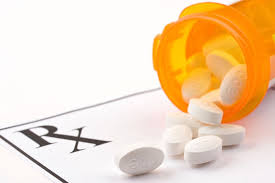By Chris Tremoglie
“Why do we allow our children to stay high?”
This was a question asked by Pete Smith, Republican candidate in the 6th Councilmanic District race.
This question was asked at a Council Committee on Public Health and Human Services hearing late last month. The question pertained to the opioid epidemic plaguing Philadelphia and the lackluster efforts by our city government in combating the issue. As drug overdose deaths have soared to historic levels, the local government has delivered an underwhelming response on the issue. Philadelphians deserve better.
Philadelphia’s opioid crisis is one of the worst in the country. The overdose rate is more than three times as high as the homicide rate in the city. The number of overdose fatalities has increased a whopping 143 percent since 2013. As the deaths continue to pile up, bureaucratic politics beleaguers the city’s local government, as the politicians seemingly care more about internal fighting than solving the crisis. With his patience reaching his limit on the issue, Smith made an impassioned plea to the city’s leadership at the meeting, as a concerned citizen, not an aspiring politician, seeking answers and help from the elected officials on the opioid crisis that is dogging Philadelphia.
“In the past two years, I’ve buried two of my cousins from overdose deaths,” Smith lamented. “I’m also the grandfather of a young boy who stood there while we buried his mother from an overdose death. The reason I stood next to my grandson is because my son, his father, has been somewhere out in Kensington for the last two years, addicted to heroin,” Smith said.
Sadly, Smith’s story is all too familiar – particularly among the constituents he hopes to represent in Northeast Philadelphia.
“I’m devastated that drug overdoses claimed the lives of 1,116 people last year,” Mayor Jim Kenney told the Philadelphia Inquirer in May. “Any life lost prematurely is tragic. But I am also hopeful that we are finally making progress in combating the worst public health crisis of our lifetime.”
Yet, Philadelphia’s overall response has not been up to par. One of the issues has been the struggle whether to approve sites where those addicted can shoot up in the presence of medical professionals. The conflict stems from an internal battle over the effectiveness and legality of safe injection sites.
In May, U.S. Attorney William McSwain stated that any safe injection site would be illegal as well as a poor remedy to the crisis.
“Normalizing the use of deadly drugs like heroin and fentanyl is not the answer to solving the epidemic,” McSwain said.
McSwain’s litigation is targeting the effort led by a group known as Safehouse to open the first safe injection site in the country in Philadelphia. Safehouse has a lot of prominent backing, including former Gov. Ed Rendell.
Proponents of the site argued that it is not a complete solution to the crisis but a necessary step in the right direction. Furthermore, they argued that it is safe.
“This intervention will not solve the opioid crisis, but it will provide a critical life raft,” Safehouse told the court.
During the hearing, Safehouse highlighted that there have not been any overdoses in the 30 years at safe injection sites around the world.
While the city battles over legality with the federal government, people continue to suffer. It is obvious alternative methods will be needed – if not in the long run, at the very least now. Tired of the bureaucracy, Smith offered solutions that would begin to help immediately without having a legal skirmish with the federal government.
In advocating the city helping to detox opioid users, Smith affirmed that “medicated-assisted treatment programs cannot be successful without proper detoxification.” This could be a step in the right direction as well. A study from the National Institute on Drug Abuse showed that “a significant portion of individuals who are addicted to opioid painkillers may initiate and maintain abstinence with a brief but intensive outpatient detoxification treatment followed by opioid antagonist therapy using naltrexone.”
Given the severity of the crisis, it is abundantly clear that some kind of action is needed, and it is needed now. The current conventions are leaving Philadelphians vulnerable to this crisis. The merits of safe injection sites as a remedy are worthy of a conversation, however, the legality of them seems to be an obstacle with no end in immediate sight. Perhaps outside-the-box thinking such as Smith’s idea could be the catalyst for change in the city as it suffers from its greatest health crisis of the 21st century. Hopefully, government officials will care more about helping citizens rather than winning arguments. Hopefully, this is done before there are many, many more stories like the one Pete Smith told in front of the Committee on Public Health and Human Services. Our elected officials must put the people before their pride. ••
Chris Tremoglie is a student at the University of Pennsylvania.





